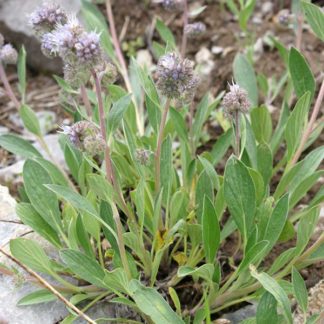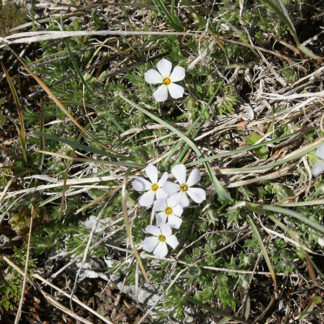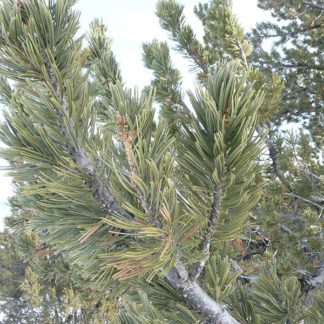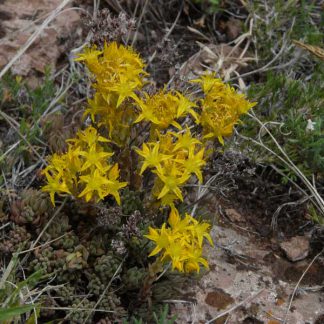rocky areas
Showing 37–48 of 55 results
-

Packera streptanthifolia / Rocky Mountain groundsel
- yellow-flowered composite; "flowers" on branched inflorescence
- 8-13 half-inch ray florets, usually spaced apart
- thick, spatula-shaped basal leaves without teeth or clefts
- thin, often deeply lobed stem leaves
- dry woodlands and rocky places
-

Penstemon procerus / littleflower penstemon
- low growing in exposed, undisturbed habitats
- tight cluster/whorls of small purple/blue/pink flowers
- tubular flowers, with lips around opening
-

Penstemon rydbergii / Rydberg’s penstemon
- small, blue/purple tubular flowers in leafy whorls
- flowers lack glands or hairs
- basal rosette of bright green, spoon-shaped leaves without glands or hairs
- stem leaves are lanceolate, around flower clusters
- wetter areas, but also along Victor/Driggs bike path
-

Penstemon whippleanus / dusky beardtongue
- large-ish purple or creamy-white tubular flowers
- from the side, flowers look like a gaping mouth; 2 lobes above, 3 below
- flowers typically hang down in small clusters at the top of their stems
- opposite, sessile leaves on flowering stems
- subalpine on rocky areas, as at Darby wind cave
-

Perideridia montana / Gairdner’s yampah
- white, compound umbel (like all the rest of the family)
- apparently leafless much of the time, especially when blooming
-

Phacelia hastata / silverleaf scorpionweed
- flowers - dull white-ish/purple-ish, numerous in short, compact, coiled clusters
- stamens extend well past petals
- leaves - basal with prominent veins; usually covered with silvery hairs; usually entire
- multiple flowering stems on a single plant
- in a variety of habitats
-

Phacelia sericea / silky phacelia
- deep purple flowers with really long stamens and orange anthers
- many flowers arranged in a tight coil up to 2 feet long
- silky, divided (fern-like) leaves
- exposed, higher altitude, rocky places; often with sagebrush
-

Phlox diffusa / spreading phlox
- low, spreading, moss-like (before blooming)
- flowers 5-petaled, a variety of colors, and with a tube below the petals
- many habitat types incl. mountain slopes, rocky terrain, dry forests or with sagebrush
- blooms in early spring to early summer
- confusable with P. hoodii
-

Phlox hoodii / spiny phlox
- half-inch, five (or four) petaled flower with yellow center
- low to ground, mat forming, moss-like
- tightly packed, narrow, spiny leaves
- blooms in very early spring, just after snowmelt
- with sagebrush on dry, rocky soils
-

Pinus flexilis / limber pine
- high elevation, rocky or talus, dry, high-stress habitat
- often - stunted and deformed by wind
- highly flexible branches
- needles in bundles (fascicles) of 5
- often - semi-rotted cones on ground below
-

Salix glauca / grayleaf willow
- very low-growing shrub at high altitude (alpine/subalpine)
- rounded to lance-shaped leaves; smooth below
- large-ish catkin inflorescences
-

Sedum lanceolatum / lanceleaf stonecrop
- bright yellow, star-shaped flowers (possible red tinge)
- fleshy/succulent, small leaves (green, yellow or red)
- open rocky outcrops, gravelly sites
- drought tolerant
Showing 37–48 of 55 results